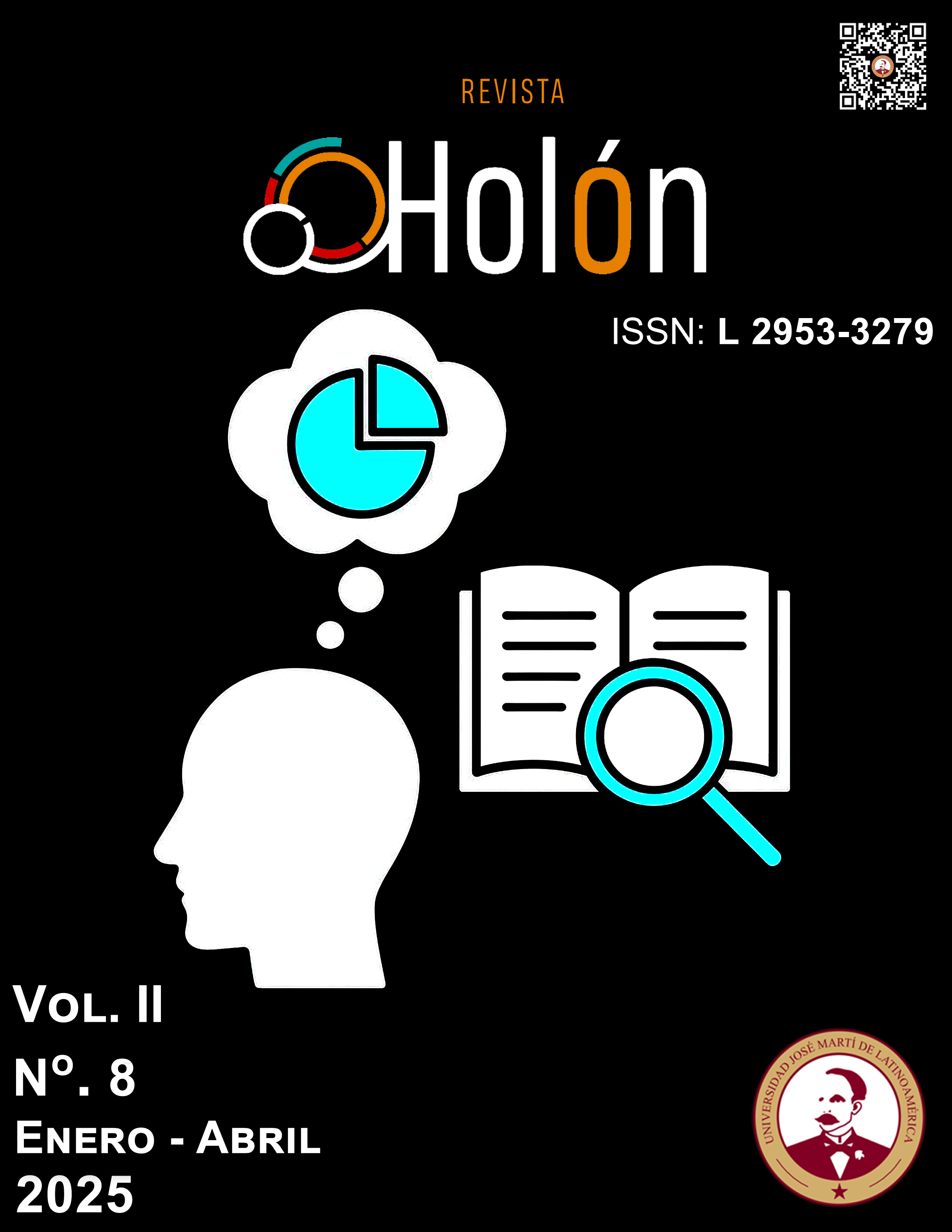

Derechos de autor 2025 Revista Holón

Esta obra está bajo una licencia internacional Creative Commons Atribución-NoComercial-CompartirIgual 4.0.
El presente artículo científico aborda una propuesta de intervención neuroeducativa con el objetivo de fortalecer las habilidades del niño con Síndrome de Down con dificultades del lenguaje oral. Es un estudio de caso que se abordó desde el diagnóstico, la técnica de observación, la entrevista y el registro anecdótico para favorecer la intervención. Se recurrió a la indagación con la madre de familia y la Docente de Preescolar. Así mismo, se solicitó al Neuropsicólogo la aplicación de una batería psicométrica para determinar las capacidades reales del niño y poder determinar su zona de desarrollo próximo. La integración de los datos recabados permitió construir un método eficaz para el entrenamiento de las habilidades y funciones cerebrales requeridas para que la terapia de lenguaje pueda ser eficaz. Las evidencias y la toma de decisiones oportunas permitieron crear lo que se denomina “Método Anita”, que consiste en la seriación de actividades que fortalecen la autoestima, las funciones somatosensoriales y el seguimiento de instrucciones del niño con Síndrome de Down y que propone un abordaje integral a partir del entrenamiento previo al ingreso a la terapia de lenguaje.